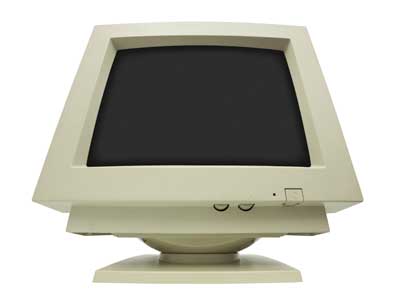Sticking with outdated technology may seem like a cost saving measure, but in fact it often means the opposite. Not upgrading to newer technology will more likely end up costing you more in lost productivity, increased security risks, and lost customers, than it would to just make the initial investment.
The Effect of Decreased Productivity on Business Profit
 Your employees need efficient computers and business tools to manage customer relationships, inventory, and processes specific to your company. When they work on outdated systems, each employee comes up with his or her own method of accomplishing daily tasks. This strategy may work for an individual employee, but it does nothing for the greater good. Even when an employee shares his or her methods with co-workers, it’s unlikely that everyone in the organization would be able to duplicate those methods to improve their own productivity.
Your employees need efficient computers and business tools to manage customer relationships, inventory, and processes specific to your company. When they work on outdated systems, each employee comes up with his or her own method of accomplishing daily tasks. This strategy may work for an individual employee, but it does nothing for the greater good. Even when an employee shares his or her methods with co-workers, it’s unlikely that everyone in the organization would be able to duplicate those methods to improve their own productivity.Forcing employees to work with non-integrated systems takes valuable time away from tasks they could be completing to generate revenue. It’s true that implementing integrated business technology is a significant investment. However, it’s a good deal when you consider that it brings reduced operating costs and increased employee productivity. After all, isn’t that what every business owner truly wants?
Clinging to Old Software and Hardware Can Be a Disaster in the Making
Some employees fear learning new things and will hold on to old ways of doing things for as long as they can. This is something management can’t allow if the company wants to remain profitable. For one thing, many vendors of business software programs offer limited or no technical support on previous versions after releasing a new version of the same program. You also need to consider how vulnerable old programs are to the efforts of hackers — they have been around long enough for hackers to learn their weak spots.
Employees who have top-notch computer systems at home won’t feel satisfied with using outdated hard drives, CD-ROMs, and video cards on the job. They may become so frustrated that they bring their own laptop computer to work. Any IT worker knows what a security risk this is, since it’s more challenging to control personal devices in a work environment.
Setting a company policy restricting the use of non-company technology may not be enough. That is because employees who require certain programs to do their job may become so frustrated by slow systems that they’re willing to go against policy. When that happens, it opens a whole new avenue for cyber threats.
Customer Impressions of Outdated Technology
You might think that old, slow computers and other technology only affect the company internally. The truth is that customers notice when something looks old or takes longer than they think it should. For example, does your company’s phone system send callers through several rounds of voice prompts before it connects them with the right person? Does your business website have performance issues due to plug-ins that no longer work?
If the answer to these and similar questions is yes, it’s likely that your company is not making the right impression with customers. People have certain expectations of technology today, and they won’t hesitate to take their business to a competitor if they feel that your company is behind the times.
If you’re thinking of a technology overhaul, consider contracting an off-site IT company for a review of your systems. The recommendations you receive can then factor into new purchasing decisions.
